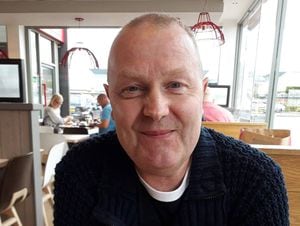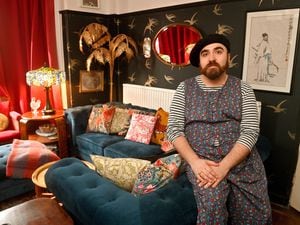'More needs to be done for those with brain tumours' says father with incurable cancer
"It's clear that more needs to be done, to do better for people like me and my family who are diagnosed with this devastating disease."

Those are the words of a father-of-two from Wolverhampton who is hoping to raise awareness on brain tumours after his diagnosis.
John Lilley, aged 59, was diagnosed with a deadly grade four glioblastoma multiforme tumour, also known as GBM, in July 2019.
Since then Mr Lilley has undergone a craniotomy to remove the tumour as well as a course of chemotherapy and radiotherapy. But in July this year he was told his tumour had returned and is incurable.
Now the father-of-two will undergo another course of chemotherapy to help prolong his life – but wants to raise awareness and encourage people to donate to the Brain Tumour Charity, so that one day there will be a cure for the deadly disease.
He said: "My nightmare began on July 3, 2019, a day I will never forget. I was getting ready for work when I had a seizure on the bathroom floor. My daughter found me and I was rushed by ambulance to New Cross Hospital where I was told there was a mass on my brain.
"I was transferred to the QE [Queen Elizabeth Hospital] in Birmingham the very next day where I underwent numerous MRI scans, CT scans and a biopsy. Two weeks later I was in surgery for five hours to remove the tumour having just been told at the age of 57, my condition was terminal.
"It came as a huge shock to myself and the rest of my family but what also shocked me was that less than two per cent of funding goes towards this type of cancer."
Brain tumours kill more children and adults under 40 than any other cancer, according to the charity Brain Tumour Research. The average survival time after a GBM diagnosis is between 12 to 18 months, with only a quarter of patients surviving more than one year and five per cent surviving more than five years.
Treatment options are very limited and there is no cure and currently, less than two per cent of the £468 million research budget for Cancer Research UK goes towards funding brain tumours.
Since his diagnosis Mr Lilley had to leave his job at Homeserve in Walsall and now spends his time with family and friends, although Covid-19 restrictions have meant he hasn't been able to socialise as much.
But he is using his time to blog about his experience living with a brain tumour and raise awareness of the condition so that one day there might be a cure.
He added: “We have seen, in a generation, a prognosis for a breast cancer patient or a leukaemia patient turned on its head from investment in research, but we haven't seen that for brain tumour patients.
"It's clear that more needs to be done, to do better for people like me and my family who are diagnosed with this devastating disease."
The Brain Tumour Research charity recently launched a campaign called 'Stop the Devastation', which features those whose lives have been hit by this type of cancer with the aim of highlighting the underfunding and encouraging people to donate.
For more information visit www.braintumourresearch.org/





